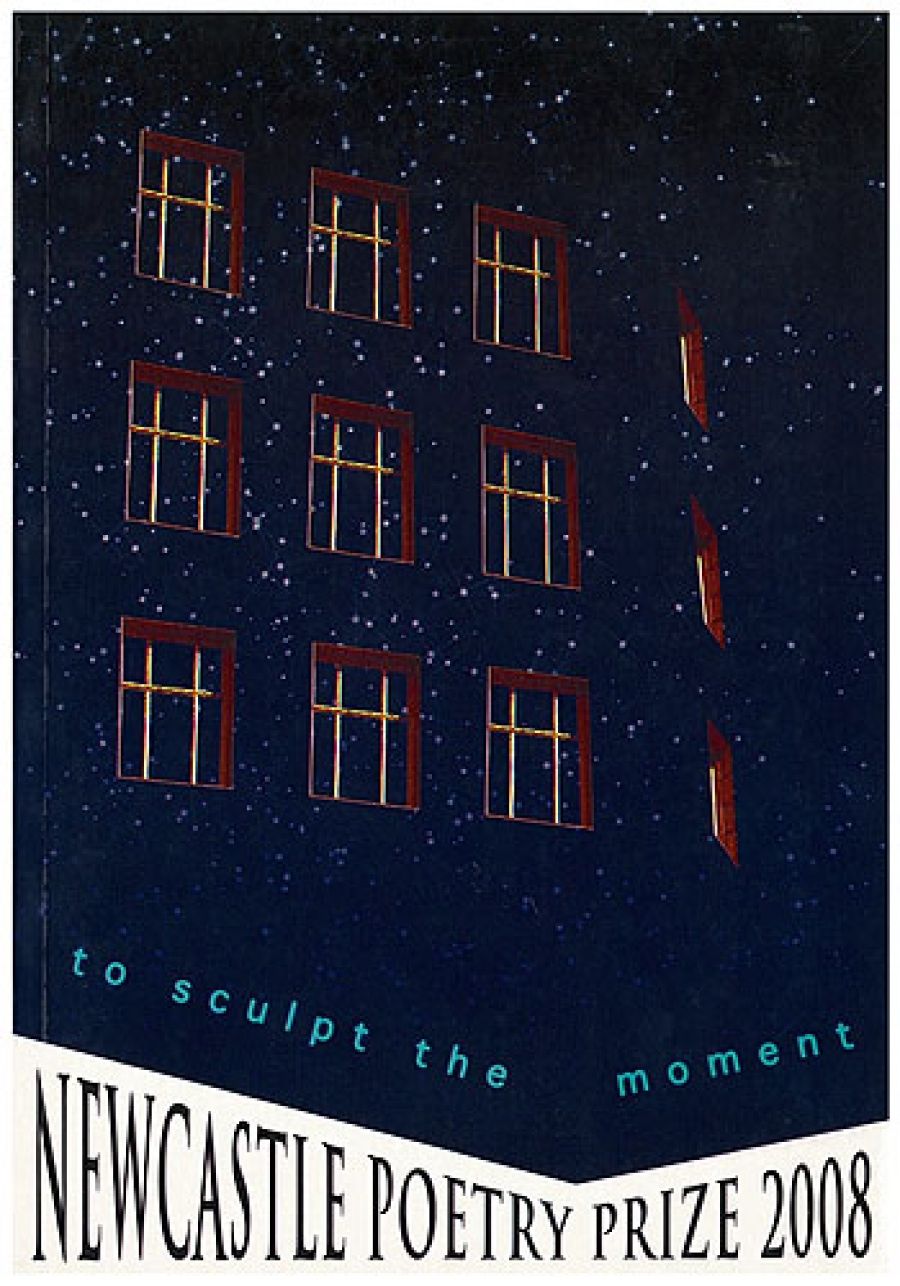
- Free Article: No
- Contents Category: Poetry
- Review Article: Yes
- Online Only: No
- Custom Highlight Text:
Despite the deadly title, this anthology of twenty-eight poems from the 2008 Newcastle Poetry Prize is replete with gems. Assembled from 423 entries by judges Jan Owen, Philip Salom, and Richard Tipping – effectively the anthology’s editors – it is a brilliant sampler that few anthologies can match for the legroom offered to the longer poem and poetry sequence.
- Book 1 Title: To Sculpt The Moment
- Book 1 Subtitle: Newcastle Poetry Prize Anthology 2008
- Book 1 Biblio: Hunter Writers’ Centre, $20 pb, 170 pp, 9780975835456
The collection opens with David Musgrave’s winning poem ‘The Baby Boomers’, which in its easy portraits of a recognised demographic and foregrounding of dissipating aspirations could earn further anthologising in years to come. The prize’s three ‘highly commended’ poems – by Elizabeth Campbell, Shevaun Cooley, and Julian Croft – follow. All have strengths, but Cooley’s ‘Expeditions with WG Sebald’, in particular, offers beautifully paced movement between associated words, ideas and images.
There is no sense of quality diminishing beyond the judges’ favourites; indeed, some of the finest contributions lie deeper within this book. Adrienne Eberhard’s ‘This Woman’ dissects the trauma of mastectomy, in the process cataloguing, with ‘the Buddha’s detachment’, the many manifestations of ‘the breast’. John Foulcher’s ‘This is My Body’ commemorates various clergy, diagnosing how physiological malfunction brings ‘the body to its knees, / slowing your prayers to a trickle’. Kathryn Lomer’s ‘The Love Hand’ provides effortless plays on language in transposing the difficult language of Auslan, and Isi Unikowski’s ‘The Idiom of Place’ is a witty and intelligent distillation of place and history. Set in post-hurricane New Orleans, Roberta Lowing’s ‘The End of the Rainbow’ has something of the surreally dark world of Cormac McCarthy’s The Road. A few poems labour under the weight of excessively wide reference, and biographical notes for contributors would have been useful, but in this anthology we have a marvellously rewarding paean to the long poem.


Comments powered by CComment